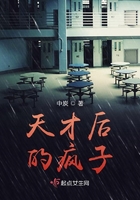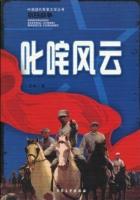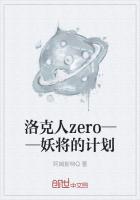In the time of serfage the proprietors clearly perceived these and similar advantages, and compelled their serfs to live together in large families. No family could be broken up without the proprietor's consent, and this consent was not easily obtained unless the family had assumed quite abnormal proportions and was permanently disturbed by domestic dissension. In the matrimonial affairs of the serfs, too, the majority of the proprietors systematically exercised a certain supervision, not necessarily from any paltry meddling spirit, but because their own material interests were thereby affected. A proprietor would not, for instance, allow the daughter of one of his serfs to marry a serf belonging to another proprietor--because he would thereby lose a female labourer--unless some compensation were offered. The compensation might be a sum of money, or the affair might be arranged on the principle of reciprocity by the master of the bridegroom allowing one of his female serfs to marry a serf belonging to the master of the bride.
However advantageous the custom of living in large families may appear when regarded from the economic point of view, it has very serious defects, both theoretical and practical.
That families connected by the ties of blood-relationship and marriage can easily live together in harmony is one of those social axioms which are accepted universally and believed by nobody. We all know by our own experience, or by that of others, that the friendly relations of two such families are greatly endangered by proximity of habitation. To live in the same street is not advisable; to occupy adjoining houses is positively dangerous; and to live under the same roof is certainly fatal to prolonged amity.
There may be the very best intentions on both sides, and the arrangement may be inaugurated by the most gushing expressions of undying affection and by the discovery of innumerable secret affinities, but neither affinities, affection, nor good intentions can withstand the constant friction and occasional jerks which inevitably ensue.
Now the reader must endeavour to realise that Russian peasants, even when clad in sheep-skins, are human beings like ourselves.
Though they are often represented as abstract entities--as figures in a table of statistics or dots on a diagram--they have in reality "organs, dimensions, senses, affections, passions." If not exactly "fed with the same food," they are at least "hurt with the same weapons, subject to the same diseases, healed by the same means,"
and liable to be irritated by the same annoyances as we are. And those of them who live in large families are subjected to a kind of probation that most of us have never dreamed of. The families comprising a large household not only live together, but have nearly all things in common. Each member works, not for himself, but for the household, and all that he earns is expected to go into the family treasury. The arrangement almost inevitably leads to one of two results--either there are continual dissensions, or order is preserved by a powerful domestic tyranny.
It is quite natural, therefore, that when the authority of the landed proprietors was abolished in 1861, the large peasant families almost all crumbled to pieces. The arbitrary rule of the Khozain was based on, and maintained by, the arbitrary rule of the proprietor, and both naturally fell together. Households like that of our friend Ivan were preserved only in exceptional cases, where the Head of the House happened to possess an unusual amount of moral influence over the other members.
This change has unquestionably had a prejudicial influence on the material welfare of the peasantry, but it must have added considerably to their domestic comfort, and may perhaps produce good moral results. For the present, however, the evil consequences are by far the most prominent. Every married peasant strives to have a house of his own, and many of them, in order to defray the necessary expenses, have been obliged to contract debts.
This is a very serious matter. Even if the peasants could obtain money at five or six per cent., the position of the debtors would be bad enough, but it is in reality much worse, for the village usurers consider twenty or twenty-five per cent. a by no means exorbitant rate of interest. A laudable attempt has been made to remedy this state of things by village banks, but these have proved successful only in certain exceptional localities. As a rule the peasant who contracts debts has a hard struggle to pay the interest in ordinary times, and when some misfortune overtakes him--when, for instance, the harvest is bad or his horse is stolen--he probably falls hopelessly into pecuniary embarrassments. I have seen peasants not specially addicted to drunkenness or other ruinous habits sink to a helpless state of insolvency. Fortunately for such insolvent debtors, they are treated by the law with extreme leniency. Their house, their share of the common land, their agricultural implements, their horse--in a word, all that is necessary for their subsistence, is exempt from sequestration. The Commune, however, may bring strong pressure to bear on those who do not pay their taxes. When I lived among the peasantry in the seventies, corporal punishment inflicted by order of the Commune was among the means usually employed; and though the custom was recently prohibited by an Imperial decree of Nicholas II, I am not at all sure that it has entirely disappeared.















